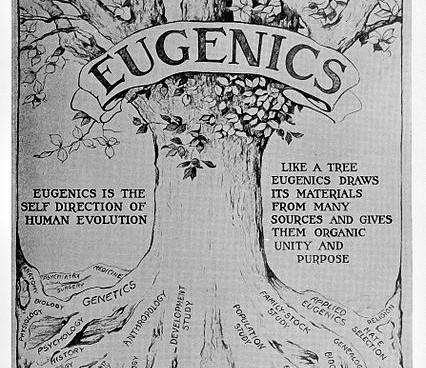Challenging the Legacies of Eugenics in Science, Medicine, and Technology

CGS is excited to announce the launch of a new anti-eugenics initiative that has been years in the making. Legacies of Eugenics in Science, Medicine, and Technology kicks off with a monthly essay series published at the Los Angeles Review of Books that will expose and contest the reemergence of eugenic ideas in contemporary health sciences, human biotechnology, public health, and medicine. Community and campus-based events featuring the authors are also being planned. The project is a collaboration among CGS, the Othering and Belonging Institute, and Berkeley Public Health.
The introductory essay, authored by UC Berkeley professor and CGS senior fellow Osagie Obasogie, was published on April 17. Obasogie weaves together reflections on the eugenic enthusiasms of IVF inventor and Nobel laureate Robert Edwards with an account of his own discovery of a pro-eugenics research fund at UC Berkeley School of Public Health, laying the groundwork for the 20+ essays that will follow.
Often defined by the atrocities of Nazi Germany or remembered as a fringe idea that disappeared after World War II, eugenics was a widely endorsed and thoroughly American project. Early 20th-century eugenic beliefs were central to the mainstream science and medicine of the day, and eugenic ideas have been “baked in” to some of these fields’ foundational principles. As Obasogie states:
Since the end of World War II, eugenics has simultaneously hidden in the shadows and festered in the sunlight. Despite assumptions about its demise, it is still enmeshed in the foundations of how some professions think about the world.
A stellar roster of authors from a range of fields, all of whom have thought deeply and written widely on these matters, will delve further into the work of correcting misperceptions about our eugenic past, challenging the resurgence of eugenic ideas and practices in the present, and halting the normalization of eugenics in the science and technology shaping our futures. LA Review of Books will publish a new essay each month and the entire series will be collected on their open access website.
With the 2024 US presidential race focusing media coverage and public attention on issues of reproduction, immigration, systemic racism, and the global future of science and technology, the need for an anti-eugenic lens is clear. These essays underline what is at stake for our communities and democracy when eugenics is allowed to linger unchallenged in the background as we make consequential decisions about our common future.



